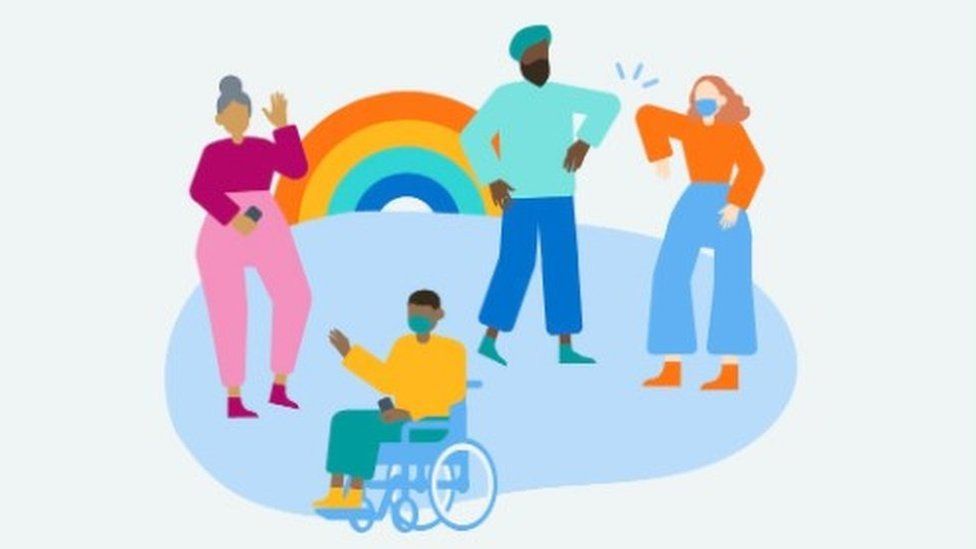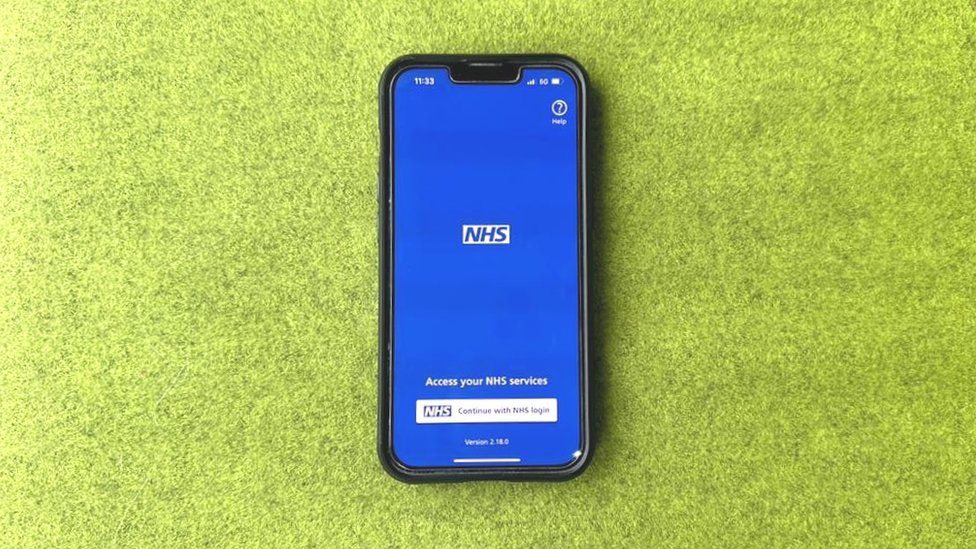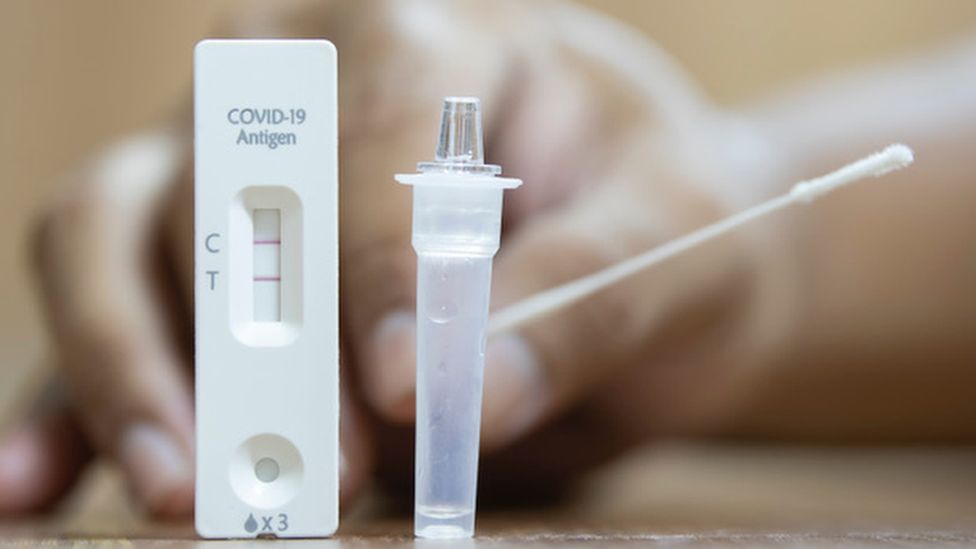Pings signal closure of NHS Covid-19 app

People who installed the NHS Covid-19 app in England and Wales have been receiving alerts informing them the platform has now shut down.
It was launched in 2020 as a tool to help fight the spread of Covid-19 by warning citizens if they had been near to someone who was infected.
It was downloaded around 30 million times during the pandemic.
Scotland and Northern Ireland had their own versions, which have also now closed.
The England and Wales app stopped working on Thursday and will disappear from Apple and Google’s app stores in May.
The app was fraught with challenges. At one point its algorithm had to be tweaked after tens of thousands of people were receiving alerts every day telling them to self-isolate in case they were infected. This period was dubbed the “pingdemic”, and in one week in December 2021 the app sent nearly 700,000 notifications.
It worked by using bluetooth to identify other devices nearby which also had it installed.
If someone around you later used their app to report a positive Covid test and you had been within two metres of them for longer than 15 minutes, you would be alerted that you had been in close contact with the virus.
All the data was anonymised so the owners of the devices were never identifiable.
Because of this, the recommendation to self-isolate could not be legally enforced, leading to complaints that it was not effective enough.
When it was launched, it emerged some older phones could not run the app, and the contact tracing could be inaccurate at times. It also faced resistance over misplaced concerns the tracking functionality could somehow be accessed by police.
The Test and Trace operation – including manual contact tracing, which has similar rates of infection to those alerted by the app – was also criticised by politicians as having “no clear impact” despite a multi-billion budget.
However, research published in February suggested the app prevented about one million Covid cases, 44,000 hospitalisations and almost 10,000 deaths during its first year of use.
The authors of the peer-reviewed study said the research “shows that digital tracing apps have major potential for reducing transmission of [Covid-19] when combined with strong user engagement”.
Although all Covid-19-related restrictions have since been lifted, those who have the illness or symptoms are still advised to “try to stay at home and avoid contact with other people”.
Benedict Macon-Cooney, chief policy strategist at the Tony Blair Institute for Global Change, told the BBC the app was a “really important initiative to get a grip on the incredibly fast moving situation”, but that it had some “fundamental flaws” – notably technological issues that contributed to undermining public trust in its use.
He added that another pandemic was possible in our lifetime, and that the digital infrastructure developed during Covid-19, including the app, could therefore have “a positive legacy”.
“We had to build up testing, genomics and drugs from scratch, including the mRNA vaccine that was essential to saving so many lives,” said Mr Macon-Cooney, co-author of a report which argued for the importance of science, technology and innovation in shaping the future of the UK.
“This infrastructure can help us respond to future threats, deal with other deadly illness such as flu and monkeypox, as well as help cure cancer and heart disease in the coming years.”
Some countries took a less privacy-centric approach than the UK. In Taiwan, student Milo Hiseh told the BBC his phone battery died briefly overnight and the police knocked on his door in the morning as the app had signalled that he was not traceable.
China’s app, which shuttered at the end of 2022, required citizens to enter phone numbers in order to produce a green arrow indicating they were able to travel between provinces and enter events.
Follow Zoe Kleinman on Twitter @zsk.
Related Topics
-
-
28 September 2022

-
-
-
11 March 2022

-
